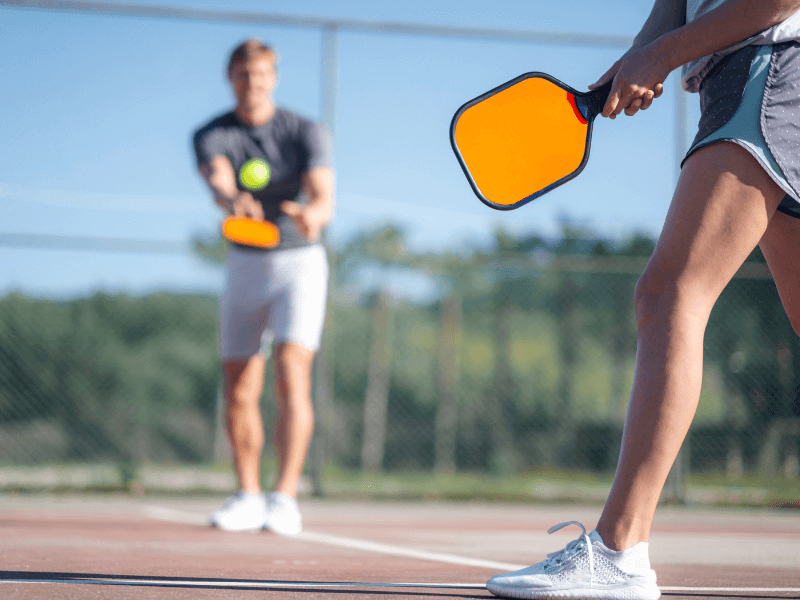For both professional athletes and keen amateurs, foot health plays a huge role in sporting performance and recovery. Our feet support, stabilise, and absorb shock every time we move. During sport, the demands increase significantly — for example, running puts between three and seven times your body weight through your feet with every step. It’s no surprise, then, that active men and women are more prone to foot and lower limb injuries.
The Royal College of Podiatry highlights that anyone undertaking regular exercise can benefit from a podiatry check-up, whether you’re a runner, footballer, gym-goer or dancer.
Common sports foot and ankle injuries
Sports injuries affecting the feet and ankles are usually divided into two groups:
- Overuse injuries – caused by repeated stress from recurring movements (e.g., running, jumping).
- Biomechanical injuries – caused by poor alignment or abnormal movement patterns, often made worse if you continue to train through pain.
Without treatment, an overuse problem can quickly become a biomechanical issue as your body compensates with unnatural movement. That’s why early assessment by a podiatrist is so important.
1. Achilles tendonitis
Inflammation of the tendon connecting the calf to the heel bone. It causes pain and stiffness at the back of the heel and may take 4–6 weeks (or longer in severe cases) to recover. Eccentric calf strengthening is usually part of rehabilitation. NHS Achilles tendonitis guidance explains treatment options.
2. Ankle sprains
Ligament injuries from twisting or rolling the ankle. They range from mild stretching to partial or complete tears. Recovery can take weeks to months depending on severity, and balance training is key to preventing recurrence.
3. Plantar fasciitis
Inflammation of the thick ligament that supports the arch of the foot. Plantar Fasciitis causes stabbing heel pain, especially first thing in the morning. With rest, stretching and podiatry care, symptoms usually improve within weeks, though chronic cases may take months.
4. Shin splints (Medial Tibial Stress Syndrome)
Common in runners and footballers, shin splints cause pain along the inner shin due to repetitive stress or poor biomechanics. Proper footwear, orthotics, and gradual training adjustments can help reduce recurrence.
Other frequent issues include stress fractures, blisters, ingrown toenails, and sesamoiditis (pain under the ball of the big toe).
Preventing sports injuries with podiatry
In an ideal world, you’d see a podiatrist before starting a new training plan or sport. A podiatry check-up helps identify risks and set you up for injury-free activity.
At our London podiatry clinics, we carry out a biomechanical assessment – a detailed study of how your bones, joints, and muscles move during walking, running or sport. This allows us to detect underlying issues such as:
- Flat feet or high arches affecting posture and gait.
- Abnormal foot alignment contributing to shin splints or Achilles problems.
- Heel pain or plantar fasciitis from overuse.
- Bunions or other deformities affecting sports footwear fit.
Following assessment, your podiatrist may recommend:
- Custom orthotics – insoles designed to improve posture, correct gait, and reduce strain during sport.
- Sports footwear advice – choosing shoes with the right support, cushioning, and fit for your activity.
- Stretching and strengthening programmes – targeting the Achilles, calves, and intrinsic foot muscles to build resilience.
- Toenail and skin care – to prevent painful ingrown toenails, fungal infections or blisters that interfere with training.
Why see a sports podiatrist?
A podiatrist specialising in sports medicine doesn’t just treat injuries — they also help improve performance and prevent recurrence. Whether you’re managing a long-term condition like plantar fasciitis or recovering from a sudden ankle sprain, expert podiatry care can:
- Speed up recovery.
- Reduce pain with targeted interventions.
- Prevent compensation injuries higher up the body (knees, hips, back).
- Keep you active and training safely.
If you’re already dealing with foot or ankle pain, don’t wait until it worsens — a sports podiatry assessment can get you back to activity faster.
Next steps
If you’re an active sportsman or woman experiencing foot pain, or you’d like to prevent problems before they stop you training, book a podiatry appointment online at Feet By Pody or call our friendly team at Feet By Pody on 0207 099 6657
Our podiatrists will provide a thorough assessment, offer treatment tailored to your sport, and recommend preventative strategies — helping you stay active and pain-free.

